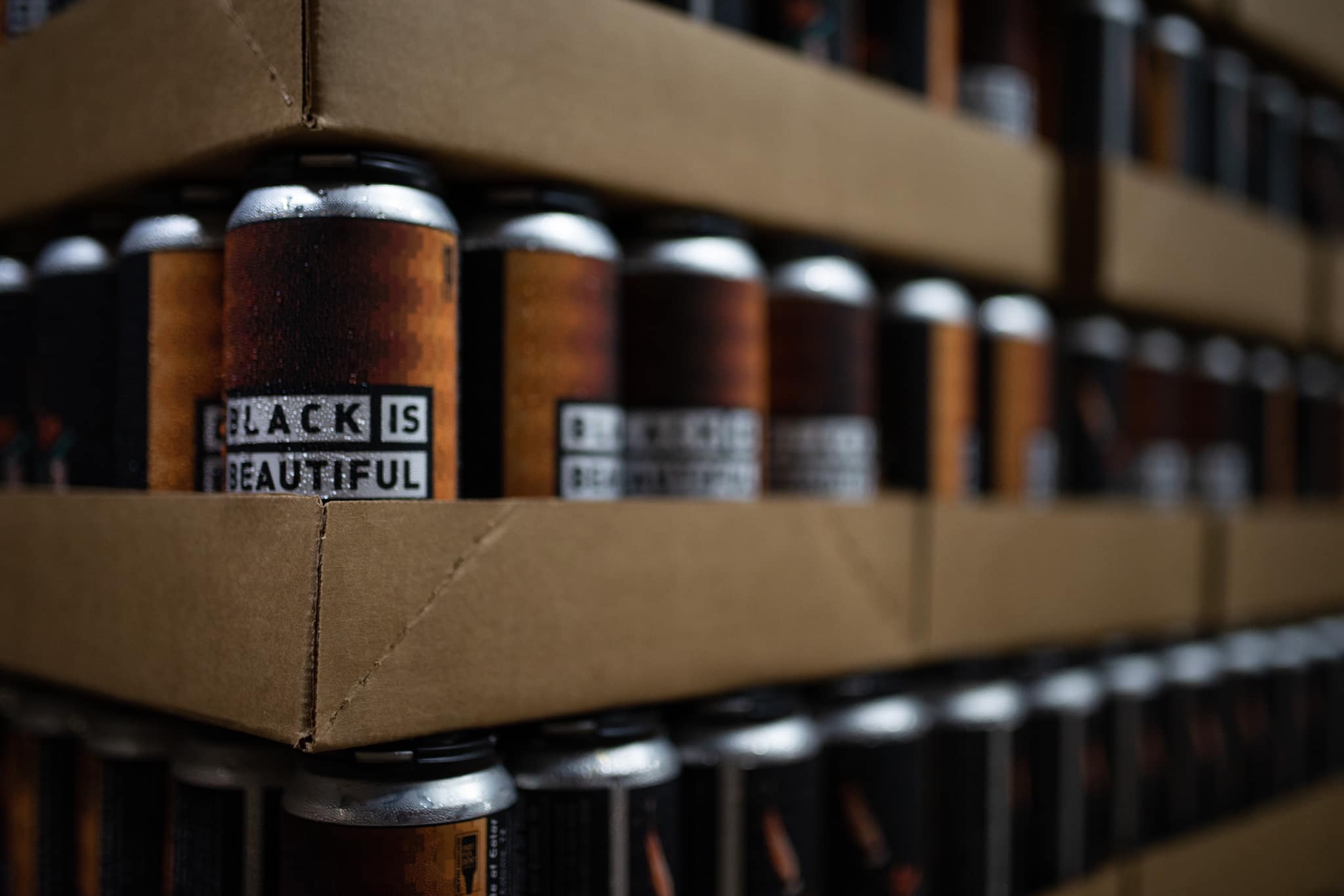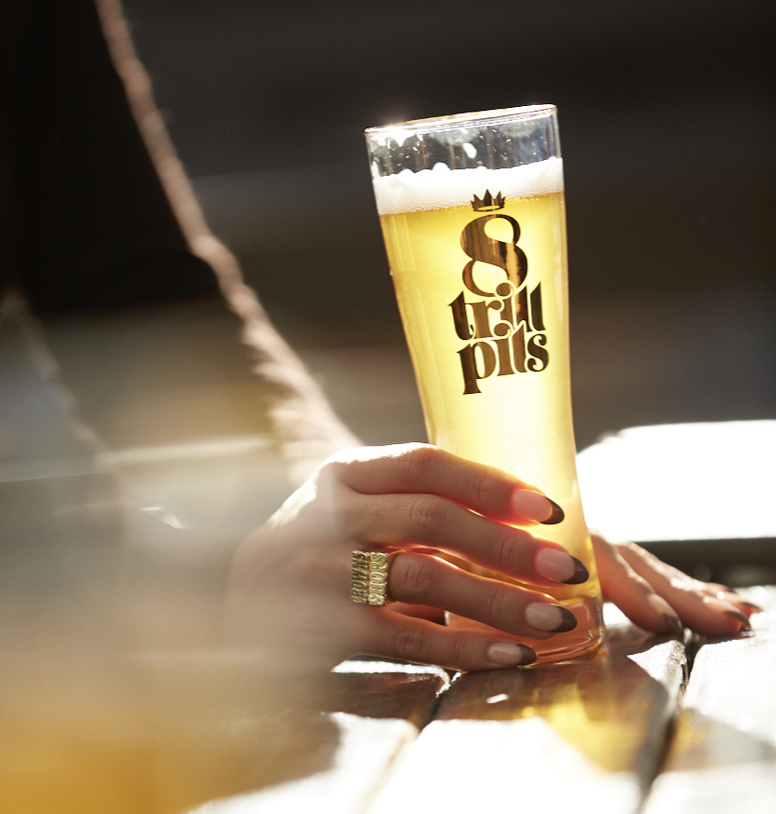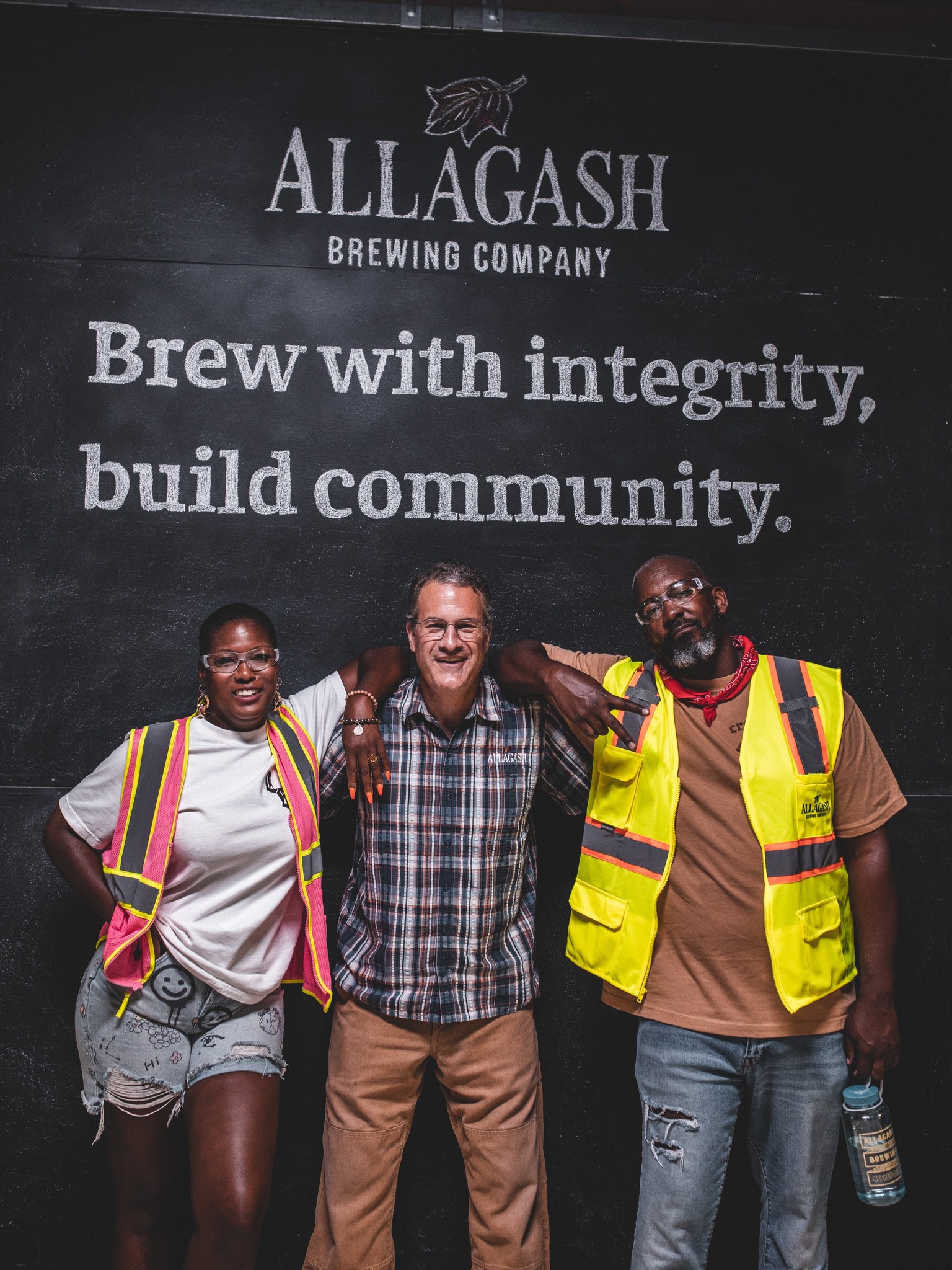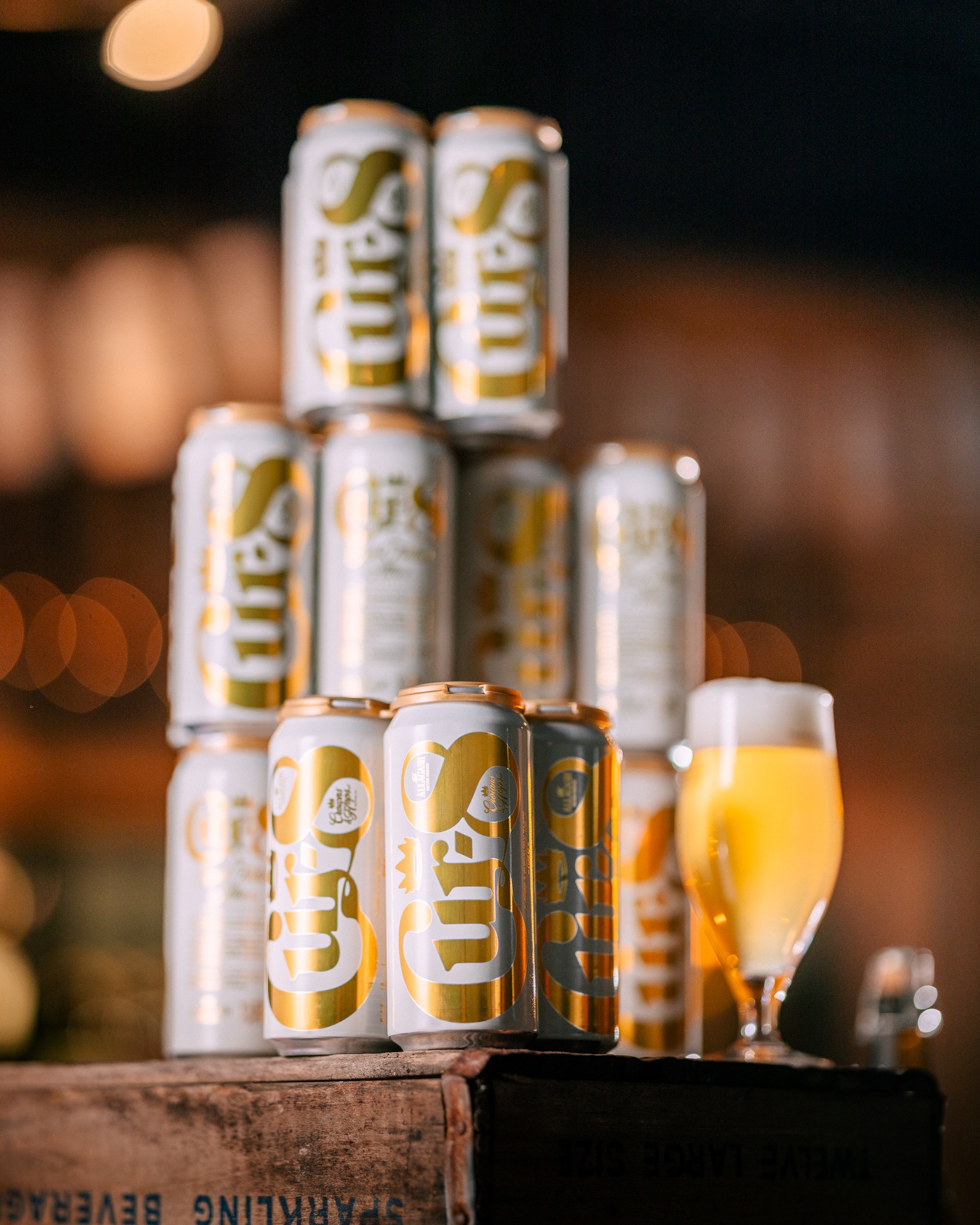[ad_1]
While not the first of its kind, the collaboration between Russian River and Avery Brewing on Collaboration Not Litigation Ale in 2006 would eventually lead to breweries around the world following in their footsteps.
Since then, the craft beer industry has been filled with collaborations of all kinds. Smaller breweries have often partnered with larger breweries, which eventually led to breweries collaborating with people in and around the craft beer industry like rappers, bands, chefs, influencers, and more.
In 2018, after the deadly Camp Fire wildfire left a path of destruction in Butte County, Sierra Nevada established the Resilience Butte County Proud IPA project, a collaborative brewing project that would sign on over 1,400 breweries, resulting in raising $8.4 million. The project exceeded Founder Ken Grossman’s initial estimates of raising $3 million.
The success of this project encouraged the industry to collaborate on a national and international scale without the need to be in the same room. More breweries followed in Sierra Nevada’s footsteps. In 2020, Other Half Brewing Co. launched All Together to support hospitality professionals during the height of the pandemic.
That same year, Marcus Baskerville launched Black Is Beautiful in response to the outcry and protests after George Floyd’s murder. The collaboration included 1,221 breweries across all 50 states and 22 countries around the world.

The Problem with Beer Collaborations
Many breweries used the opportunity of brewing a Black Is Beautiful beer to partner with the Black craft beer community, including up-and-coming breweries. Since then, these partnerships have become more frequent—a small Black-owned brewery or brewery-in-planning partners with a more established brewery. Festivals like Barrel & Flow Fest (formerly Fresh Fest) also supported the model of Black-owned breweries or breweries in planning, partnering with established breweries on beers that would be released at the festival.
But while the growth of collaborations with Black brewery owners and other Black craft community members is welcomed, sometimes these partnerships can feel one-sided. Outside of financing the venture, the more established breweries are benefiting from their partner’s culture and audience and also boosting their reputation merely by collaborating with a member of the BIPOC community.
True collaboration, especially when the grounds are unequal between the two collaborators, should ensure both parties benefit from the interaction. And that shouldn’t always come in the form of money, but also knowledge in and outside the brewhouse.
It’s time for Black people in the craft beer community to go beyond the excitement of collaborating with a brewery they admire and ask themselves: How can we both get the most out of this collaboration? We must not mistake our unequal footing as in not having value. If that were the case, the offer to collaborate with established breweries wouldn’t exist. It’s time to balance the scales.
So, what’s the way forward?
8 Trill Pills and The Eight Trillion Allies Collaboration Series

In a presentation created by Fenwick Broyard from Creature Comforts Brewing Co, Tracey Bardugon from Fire Maker Brewing, and Isaiah Smith from Our Culture Brewing for the Georgia Brewers Association on DEI, they put forward a suggestion to collaborate beyond the brewhouse. The established brewery should open its doors to other departments within the brewery—have your marketing, accounting, and operations departments meet, and share tips, or SOPs. Doing this gives smaller breweries or breweries in planning access to real-world training. It helps reduce knowledge gaps. It helps to level the playing field.
But there’s an even better option to knowledge and that’s capital.
It can cost anywhere from $500,000 to $1.5 million to start a brewery, and on average Black business owners are only able to secure around 1/3 of the capital that White entrepreneurs can.
In order to increase the amount of Black-owned breweries in this country, capital is the biggest thing holding many breweries in planning back.
In 2020, Crowns & Hops started the 8 Trill Pils initiative focused on eliminating the barriers of ownership for Black-owned craft beer brands. In its first year, Crowns & Hops awarded a total of $100,000 to five different Black-owned craft beer brands.
“The 8 Trill Fund had a tremendous impact on Montclair Brewery’s business, and we continue to benefit from the proceeds of it today. The fund enabled us to get our own canning line, which allowed us to be more free when it comes to packaging our beers and also set us up for growth. We would be in a very different place today if it was not for the grant,” said Denise Ford-Sawadogo, Co-Founder of Montclair Brewery.
Montclair Brewery installed the canning line during New York’s partial lockdown when the brewery could only operate at 30% capacity. Because of the canning line, the brewery was able to increase its revenue since they weren’t able to operate at full capacity.
“And it is still [increasing our revenue] today, as we are now able to supply our beers nationally in cans. We are launching our direct-to-consumer business in February, and we have expanded in New York. It would have been very difficult to do this without our own canning line. During COVID, our business grew, and having the ability to can our beers on our own schedule helped make that happen,” said Ford-Sawadogo.
The initiative is back this year and has two main focuses. The first is the 8 Trill Fund, which provides grants to Black-owned breweries and businesses in and around the business of craft beer in the form of capital.
The second arm of the initiative is Eight Trillion Allies, which has two types of allies—Collaborators and Contributors.

Collaborators can range from independent breweries, brewing organizations, or craft beer brands that collaborate with existing or in-planning Black-owned breweries under the Eight Trillion Allies Collaboration Series.
Collaborators under the Eight Trillion Allies banner will contribute all or a portion of the collaboration proceeds to the 8 Trill Fund. They’re also required to provide mentorship in the form of best business practices to Black-owned breweries.
Contributors are organizations inside or outside the beer industry that provide capital, resources, and industry knowledge for Black-owned breweries through the 8 Trill Fund. Contributors do not have to collaborate on a product nor do they need to be from the craft beer industry to participate.
Crowns & Hops kicked off their new initiative with Allagash Brewing. For Black History Month, the two breweries are releasing Cur-8, a beer combining the crisp flavor of Crowns & Hops’ 8 Trill Pils pilsner with notes of bourbon, vanilla, and oak from Allagash’s Curieux.

The beer (4-packs of 16-ounce cans) is available in California, New York, Georgia, and at Allagash’s Portland, ME Tasting Room, and the proceeds of the sales will go to the 8 Trill Fund.
The Eight Trillion Allies Collaboration Series provides the structure both breweries—established and Black-owned—need to make collaborations beneficial for both parties. It’s a great follow-up to Baskerville’s Black Is Beautiful collaboration, providing a road map for those who want to be part of the solution but are unsure where to start. And on a larger scale, it allows everyone in the beer community—from the brewery to the consumer—to have a part in making this space more equitable. It’s a level of support that has far-reaching implications for the entire industry. Making the industry more equitable for the Black community, one of the most discriminated groups in this country means improving the industry for everyone.
Unlike past charity-based collaboration initiatives that often fall out of relevance once the beer is brewed and the check is written, the Eight Trillion Allies Collaboration Series encourages breweries to stay engaged. And it’s not restricted to a moment in time, but an ongoing effort to bring equity to the craft beer industry and increase Black brewery ownership to 13%.
However, the 8 Trill Pils initiative and the Eight Trillion Allies Collaboration Series are only as good as their supporters. We need the support of established breweries and the beer community as a whole to make this industry more equitable. Based on the response to the Black Is Beautiful collaboration, I’m hopeful that the craft beer community will give Black brewery owners the support they need to build, grow, and thrive. Which in turn will only make the craft beer industry stronger and show the rest of the country how incredible this community is.
* * * * *
Stephanie Grant is an Atlanta-based writer, podcaster, and content creator who uses her talents to help breweries and restaurants shine on the internet. In 2023, she launched The Share Community, a digital space for Black and Brown women and non-binary people to support each other as they navigate their careers in craft beer. You can find her work on Substack, Instagram, and YouTube.
[ad_2]
Source link


